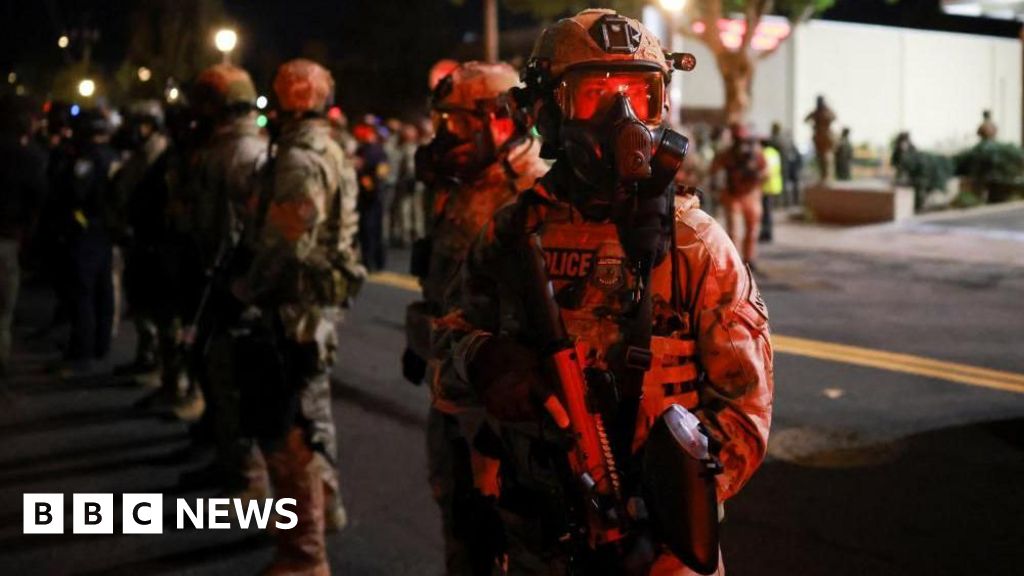
A United States judge has permanently blocked President Donald Trump from deploying National Guard members to Portland, Oregon. This decision marks a significant development in the ongoing legal battle over the president’s authority to send federal troops to U.S. cities against the wishes of local officials.
The ruling, delivered by U.S. District Judge Karin Immergut, is the culmination of weeks of legal wrangling over the Trump administration’s attempts to quell protests in Democrat-led cities. The administration’s efforts have been met with resistance from local governments, who argue that federal intervention is unnecessary and potentially unconstitutional.
Background of the Legal Battle
The controversy began when President Trump ordered federal troops to Portland in response to protests against federal immigration policies. These protests, part of a broader movement against systemic racism and police brutality, have been particularly intense in cities like Portland, Chicago, and Los Angeles.
Initially, Judge Immergut issued temporary restraining orders to prevent the deployment of troops. Her latest ruling makes these orders permanent, asserting that the president lacked a lawful basis to federalize the National Guard for deployment in Portland.
“The President did not have a lawful basis to federalize the National Guard,” Judge Immergut stated in her 106-page ruling.
Constitutional Implications
Judge Immergut’s decision highlights the constitutional tensions between federal and state powers. She cited the 10th Amendment, which reserves powers not explicitly granted to the federal government to the states. The judge emphasized that there was no rebellion or imminent threat in Portland that justified federal intervention.
The ruling underscores a critical question: under what circumstances can a president deploy military forces within U.S. cities? Judge Immergut suggested that this issue might ultimately require clarification from a higher court, potentially setting a precedent for future cases.
“Wherever this line precisely is, defendants have failed to clear it,” Judge Immergut wrote, referring to the legal threshold for deploying troops domestically.
Reactions and Future Implications
The Trump administration is expected to appeal the decision, which could bring the case before the Supreme Court. This legal battle is emblematic of broader disputes over federal authority and states’ rights, issues that have been contentious throughout American history.
In response to the ruling, the Department of Justice described Portland as “war-ravaged,” claiming that the city faced a violent siege. However, local officials and residents contest this characterization, arguing that the protests are largely peaceful and managed by local law enforcement.
“This case is about whether we are a nation of constitutional law or martial law,” said Caroline Turco, Portland’s attorney.
Historical Context and Expert Opinions
The deployment of federal troops to U.S. cities is not unprecedented. Historical parallels can be drawn to the civil rights era, when federal forces were used to enforce desegregation orders in the South. However, the current situation differs as it involves federal intervention against local government wishes.
Legal experts suggest that this case could redefine the boundaries of federal power. “This ruling could have lasting implications for the balance of power between federal and state governments,” noted constitutional law professor Dr. Emily Carter.
As the legal process unfolds, the nation watches closely. The outcome could influence future administrations’ approach to domestic unrest and the use of federal forces in American cities.
Meanwhile, the protests in Portland continue, with demonstrators and local officials advocating for systemic change and the preservation of civil liberties.
The next steps in this legal saga will be closely monitored, as they hold the potential to shape the future of federal-state relations in the United States.





